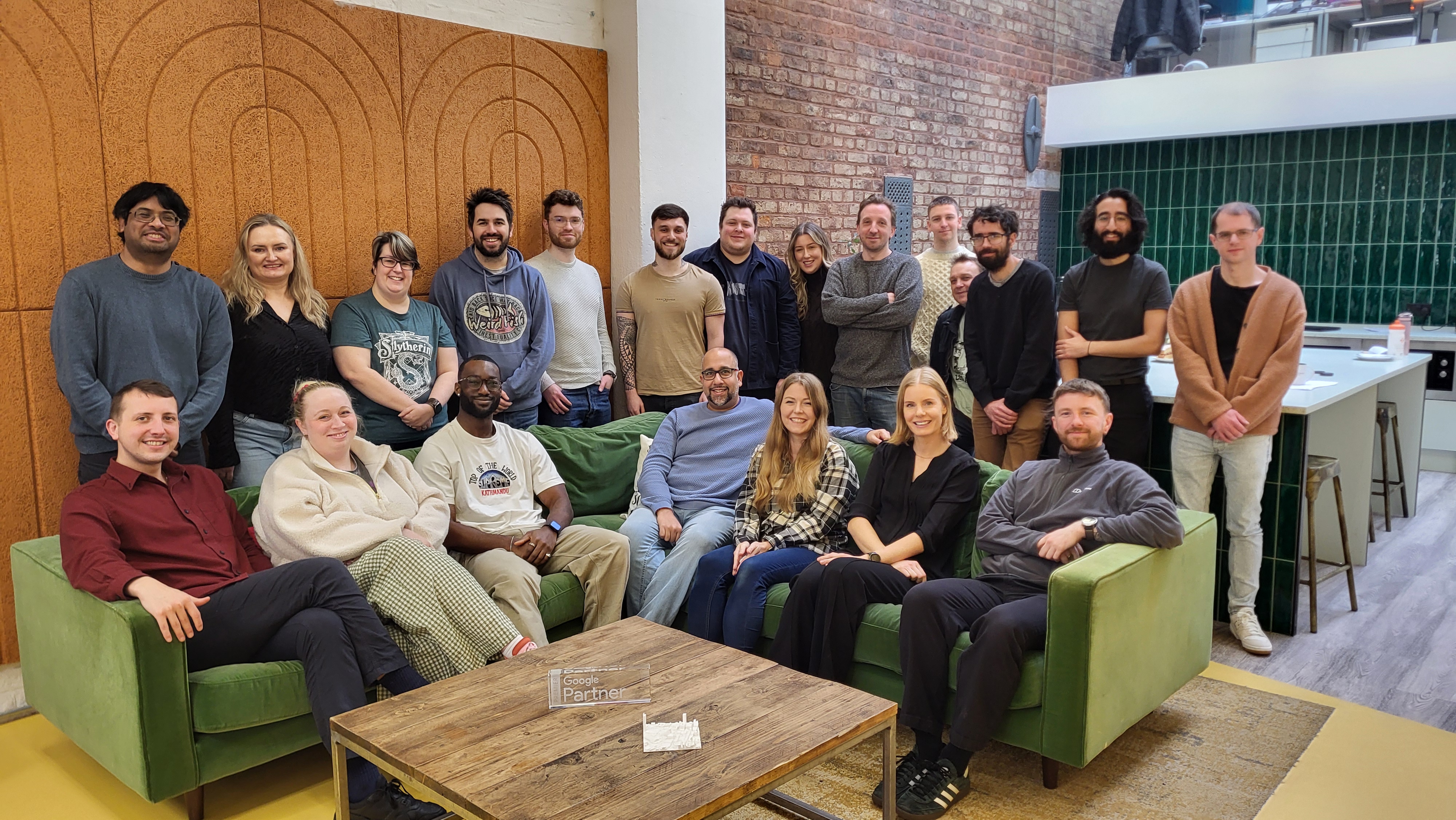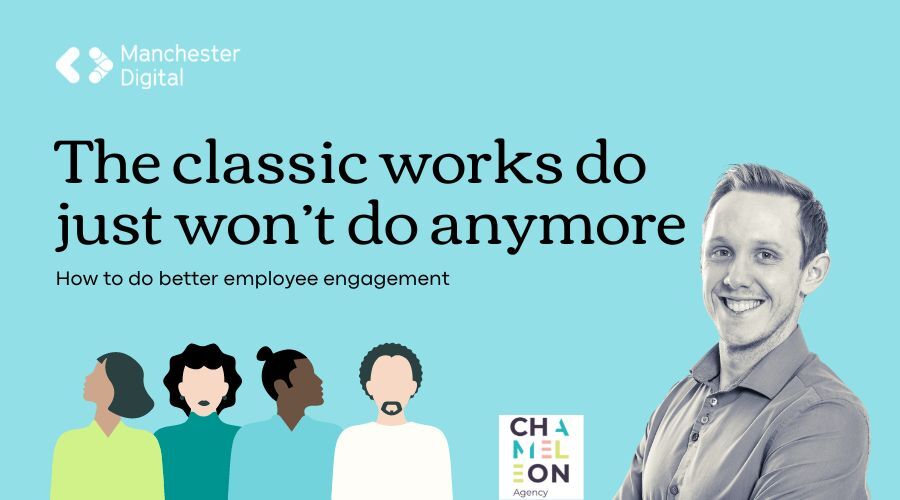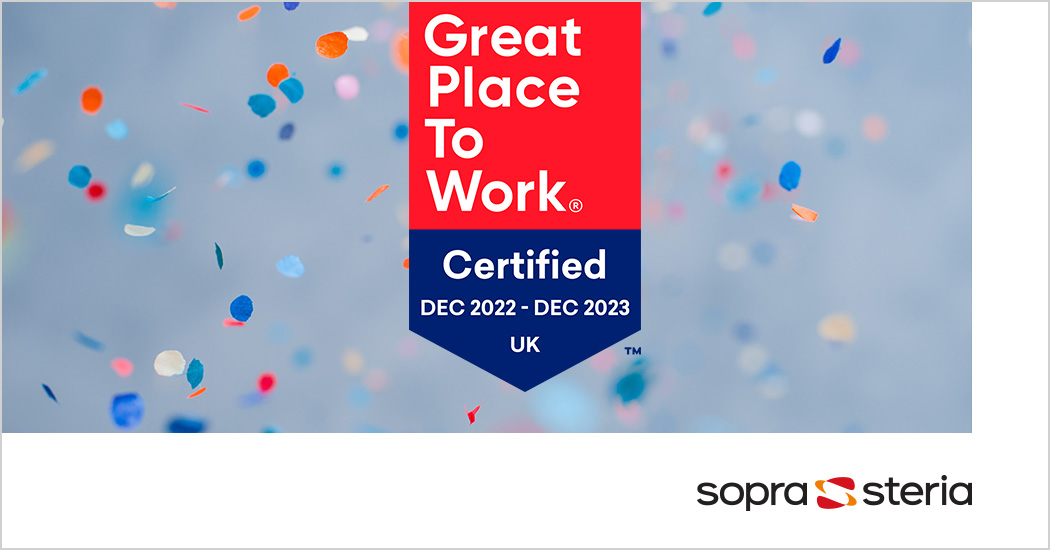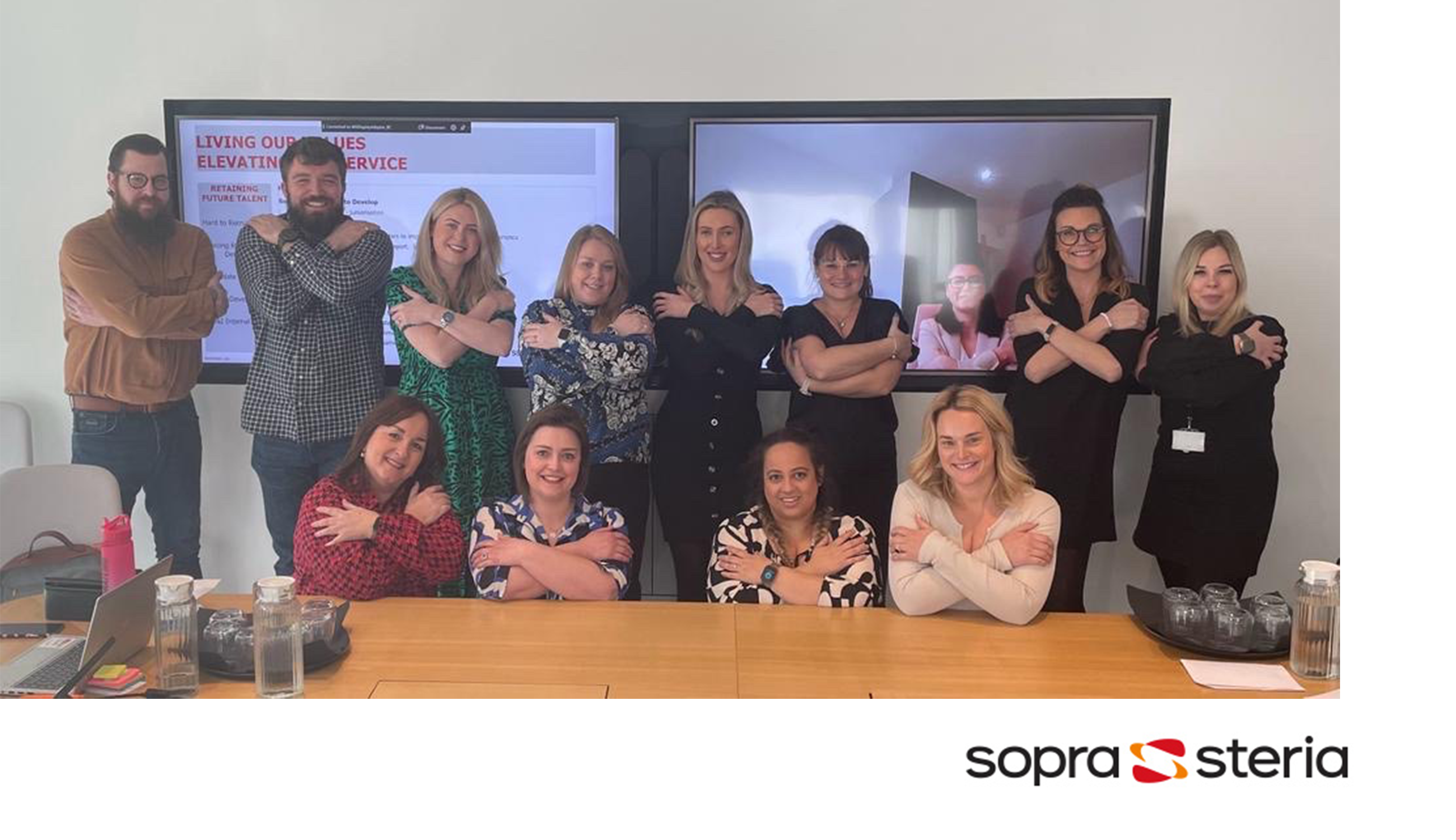What Are the Benefits of an Employee-Owned Business?
Employee ownership is becoming a more attractive option for businesses that want to grow sustainably while putting their people at the heart of what they do. It gives employees a real stake in the company - not just financially, but in shaping its direction and sharing in its achievements.
In 2019, I-COM took the step to become employee-owned. For us, it was a natural progression - an opportunity to recognise the loyalty and expertise of our team, build stronger connections with our clients, and create an environment where everyone feels invested in delivering their best work.
Since then, we’ve seen the practical impact of employee ownership across our business. Engagement has improved, decision-making has become more collaborative, and we’ve created an environment where people are genuinely motivated to do their best work – because they’re invested in the outcome.
This blog shares our experience of becoming employee-owned, what it’s meant for our growth and culture, and what other businesses should consider if they’re thinking about taking the same step.
What EO Means to Us
When we founded I-COM in 2005, we set out to build an agency rooted in strong values, genuine collaboration, and high-quality work. As the business grew, so did our commitment to creating an environment where every team member felt valued and motivated to contribute to our success.
In 2019, we became the first digital agency in Manchester to transition to employee ownership. For our team, this was more than a structural change - it was a clear statement about the kind of company we wanted to be. High staff retention had always been a feature of I-COM, and moving to an employee-owned model was a way to recognise the dedication of our colleagues and align everyone’s interests in the long term.
At its simplest, employee ownership means that every person has a stake in the business. This goes beyond financial participation. It shapes how decisions are made, how ideas are shared, and how we hold ourselves accountable to each other and to our clients.
Our experience of employee ownership has also shown that it’s not static. Shortly after our transition, the COVID-19 pandemic forced us to adapt quickly to new ways of working. In the years that followed, we realised that keeping employee ownership front of mind takes intention and consistent effort. Today, it continues to inform how we operate, how we engage with our clients, and how we support each other as colleagues and business owners.
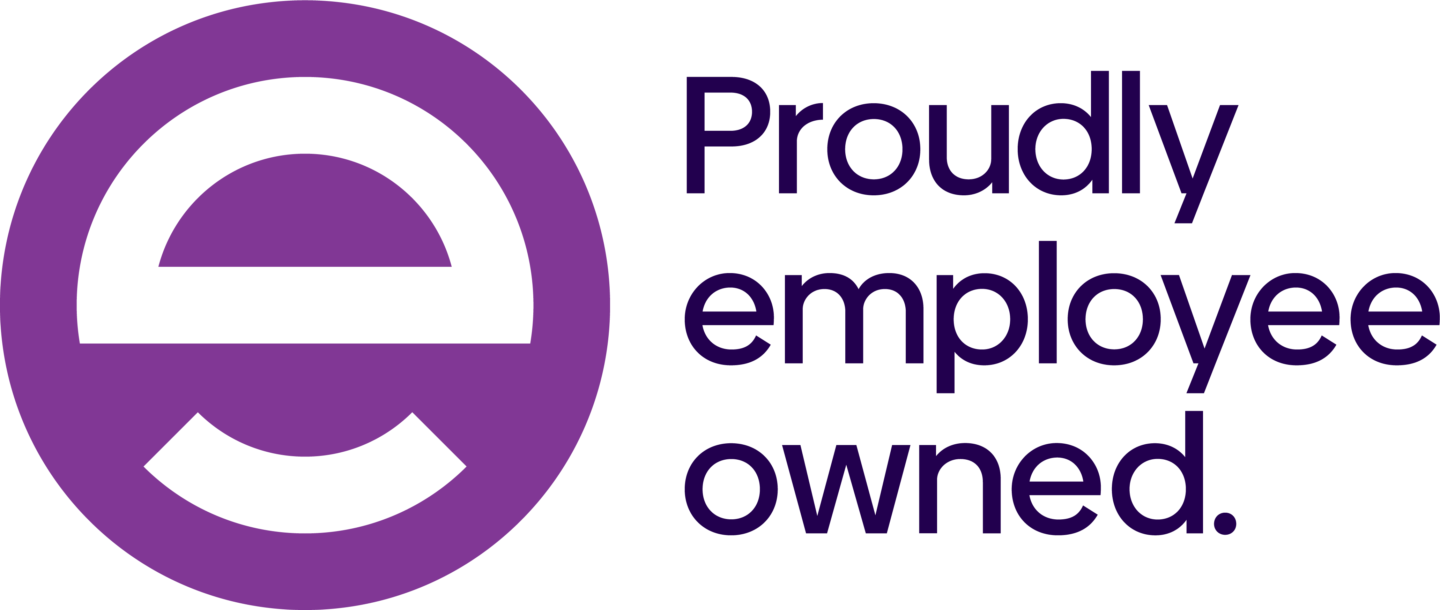
Why Employee Ownership Is Good for Business
Becoming an employee-owned business has brought a range of benefits to I-COM that extend beyond internal culture. One of the most valuable outcomes has been the sense of alignment it creates across the organisation. When everyone has a stake in the company’s success, there is a shared purpose that underpins day-to-day work and long-term strategy alike.
This collective commitment has also contributed to our resilience. During the uncertainty of the pandemic, the fact that every colleague was invested in the future of the business helped us adapt and find solutions to new challenges. That sense of shared responsibility continues to support our growth as we evolve in a fast-moving industry.
Employee ownership has also strengthened our reputation with clients. Many organisations appreciate working with an agency whose team is personally invested in delivering results. Clients often tell us they can see the difference - our motivation, creativity and responsiveness reflect the fact that we all have a genuine interest in their success. When our clients achieve their goals, we benefit too.
Governance and decision-making have become more transparent and inclusive. We’ve introduced committees and engagement processes that give employees a voice in shaping the business. This has led to fresh ideas, clearer communication, and a greater sense of accountability at every level.
Perhaps most importantly, employee ownership has fostered innovation and initiative. Colleagues are encouraged to bring forward new proposals, contribute to improvements, and look for opportunities to make a positive impact. Tools such as dashboards, flowcharts, and resources help ensure that everyone can understand how their contributions influence performance.
In our experience, this combination of shared ownership, transparency and collective drive has made I-COM a stronger, more adaptable business.
Why Employee Ownership Is Good for the Employees
For the individuals who make up our team, employee ownership has had a meaningful impact on how they experience work. One of the clearest benefits is the sense of belonging it fosters. When colleagues know they have a stake in the business, their contributions feel recognised and their commitment feels purposeful.
Employee ownership also empowers people to influence how the business develops. Through regular workshops, drop-in sessions and company-wide votes, everyone has the opportunity to share their ideas and shape decisions that affect the whole team. This participatory approach helps colleagues feel heard and valued, whatever their role.
Transparency has been another important advantage. By creating dashboards and sharing clear information about performance, we’ve made it easier for everyone to understand how the business is doing and how their work contributes to our progress. This visibility supports trust and clarity, especially during periods of change.
There are also professional development opportunities unique to employee ownership. At I-COM, colleagues can be elected as employee trustees or representatives, roles that build leadership skills and deepen understanding of governance. These positions help strengthen connections across teams and give people the chance to champion ideas on behalf of their peers.
Beyond the structural benefits, employee ownership has encouraged a culture of collaboration and shared purpose. Simple tools - from group chats that keep discussions active, to physical reminders of our ownership model in the office - help sustain this culture over time. It becomes part of how we work together, not just a concept on paper.
While employee ownership has brought clear benefits, it has also required reflection and learning. One of the most important lessons for us has been recognising that employee ownership is not something that simply happens and takes care of itself. It needs ongoing attention and commitment to stay relevant and effective.
In the early months after our transition, it became clear that not everyone naturally sees themselves as a business owner. For many people, shifting from an employee mindset to an ownership mindset takes time and support. We found that creating clear resources, such as guides for new starters, flowcharts to explain processes, and a dedicated presentation about employee ownership, helped colleagues understand what ownership meant in practice.
Communication has played a central role in maintaining engagement. When workloads increase, it’s easy for conversations about ownership to fade into the background. By utilising our regular workshops, monthly drop-ins, and an active group chat, we’ve kept those discussions accessible and visible. These touchpoints help people share their views and stay informed, even when the pace of work is demanding.
We’ve also learned that visible reminders can make a difference. Adding a mural and window signage to our workspace has reinforced the idea that employee ownership is part of our identity as a business. It’s a simple but effective way to prompt reflection and spark conversations.
Finally, we’ve come to appreciate that every business is on its own journey. There is no single formula for making employee ownership successful. It requires openness, patience, and a willingness to adapt as the business grows and circumstances change. For us, the most valuable insight has been that you get out what you put in; the more actively colleagues engage with ownership, the more rewarding it becomes for everyone involved.
Advice for Other Employee Owned Businesses
Reflecting on our experience, we believe employee ownership has been one of the most positive decisions we’ve made as a business. It has brought our team closer together, created a clearer sense of shared purpose, and strengthened our relationships with clients who appreciate working with a business where everyone is invested in delivering results.
For organisations considering employee ownership, there are a few pieces of advice we would share. First, be prepared to invest time and energy into making it meaningful. Employee ownership is not a one-off project - it is an ongoing commitment that needs clear communication, practical resources, and space for people to contribute.
Second, stay connected to networks and communities that can offer support and guidance. The Employee Ownership Association has been a valuable resource for us, providing insights and examples from other businesses at different stages of their journey. Knowing that others have faced similar challenges has made it easier to find solutions and stay motivated.
Third, be open about what employee ownership means to your business. Talking about it internally and externally helps reinforce its importance and makes it feel real. For us, sharing updates on our website, social channels and in client conversations has built understanding and strengthened our identity as an employee-owned company.
Most importantly, remember that everyone is learning together. No one has all the answers on day one, and that’s perfectly natural. With a clear purpose, a willingness to adapt, and an engaged team, employee ownership can be a rewarding way to grow a business while giving colleagues a genuine stake in its future.
We’re Here to Help
At I-COM, employee ownership has become much more than a business structure. It has shaped our culture, strengthened our commitment to clients, and created a more connected, accountable team. While the journey has involved learning and adjustment, the benefits for our business and our people have been lasting and rewarding.
If you are exploring employee ownership for your organisation or are in the early stages of making the transition, we would be glad to share our experience. Whether you have questions about how to get started, how to keep engagement strong, or what to expect along the way, we’re always open to a conversation.
Get in touch with us to find out more about how employee ownership works in practice and how it could make a difference to your business.
